This was a sermon I gave at Salt Lake Community of Christ on Sunstone Sunday, August 2024. I was preaching on/inspired by Ephesians 4:1-16.
I am interested in the ways in which we tell stories about our faith and faith development. I realized recently that I was so used to telling my story in a particular way that I was leaving out some significant parts. My sermon today is an effort to tell the story of my faith journey through the lens of community, of things lost but especially of things gained.
My husband and I were graduate students in England, where our Mormon church community was an interesting mix of English locals, American military families, and university students. There were some awkward culture clashes. The Americans could not understand why the English folks did not want to eat their brightly colored Jello dishes at the monthly potluck. Every fourth of July, Americans military folks would share testimonies about God and country while one of the English members slipped God Save the Queen into the list of hymns for that day. The community was a great mix of political and social differences. These experiences taught me that people from very different backgrounds could name some of their differences while finding community around a shared religious identity.
In that congregation, I taught the four year old Primary class and saw the challenges that the families of these children faced: the difficulty of Air Force deployments, adapting family structures to accommodate disability, and culture and language differences with our local community, together with the usual developmental challenges of growing up. Each week in our class, I asked one of the kids to pray and all of those prayers were full of long lists of everything that went wrong in their houses that morning. My church community offered me experiences to minister to other people and I loved the ridiculous humanity of those kids. Teaching Primary was a much-needed respite from the competitive academic environment I lived during the rest of each week.
For me, this time was also an intense period of study. Alongside my graduate studies, I was also beginning to take an interest in the history of the Latter Day Saint movement and starting to deconstruct my faith while desperately trying to hold onto it. Russ and I finished our degrees, moved to St. George, Utah, started teaching, and became parents. When I received criticism from my congregation and extended family for pursuing a career, I leaned on my online Mormon feminist community for support and education. This part of my life involved being on the first board of Ordain Women, growing deeper relationships in my Mormon feminist community, and encountering a Community of Christ minister at Feminist Mormon Girls Camp. My Mormon feminist community taught me about church history, feminist discourse, and introduced me to different perspectives on organizing community that focused more on decision-making by building consensus in a group. I came to understand that the church community I loved saw community in a different way, where a few men made decisions for millions of people.
My family and I left the LDS Church after the leaking of the Exclusion Policy in November 2015. As soon as I knew that I could not continue to participate in the LDS Church anymore, I knew that I needed another faith community. I was full of grief and very aware of the large role that faith and church community played in my life. I don’t always love church, but I feel a strong and deep pull toward it. In leaving the church I had loved and served, I learned that God was bigger than a single denomination and that I could still experience God in unexpected places.
In December 2015, my tiny congregation in St. George was founded. I made new community with other former Mormons in a Community of Christ space. Before long, my community included a new-to-me network of people doing different kinds of ministry and church work from many different places. I started the process of rebuilding community, faith, and trust in God. There is nothing that was easy about this process. When many of us built our first community and our first faith, we were children and our families that were doing much of the heavy lifting for us. I learned that I could begin this process again as an adult in my 30s, but it would be much harder. At the same time, I was able to rebuild with a great deal of intention, picking up only the ideas and beliefs I wanted and I learned to hold my new faith in a lighter, looser way.
In 2018, I was ordained to the office of elder in the Melchizedek priesthood. It was a calling that I had felt for most of a decade but it was also overwhelming to experience as a former Mormon woman. It is something of an emotional rollercoaster to be denied priesthood because of your gender, advocate for women’s ordination, and then to receive it, but also then wrestle with the complicated religious inheritance of that ordination. Because of my own difficult experiences of church and community, I was worried that I would use my new-found authority to hurt people unintentionally. I had witnessed and experienced many abuses of priesthood power in my life and I was terrified of repeating those patterns in my own ministry. And so I did a program online at Luther Seminary to get some training for the many skills necessary to be a solid minister. It was during this learning and growing experience that I gained a new community through seminary. This new community helped me regrow my faith in more healthy ways and mentored me into my role as a pastor, helping me to understand community dynamics in a deeper way.
And I have now pastored my tiny congregation for 6 years, done some part-time work for my mission center, volunteered with an online congregation for about five years, and done an assortment of ministry-related things, including the pinnacle of the Community of Christ leadership experience: co-directing Reunion (family camp), which is not for the faint of heart. I have seen how beautiful community can be when deeply human people love and care for each other, but also hurt each other, and then find ways to repair those relationships.
At Reunion this past year, I was in awe of an 80 year old man who had been very upset with my co-director and stormed off. Later he came back and not only apologized to her and but then also invited her into a conversation where he did the work of owning his feelings and actions. He did the repair work to make that relationship whole again. I had never before seen an elderly man with authority apologize let alone initiate and do the work of relational repair. That is the thing about communities, they are all full of flawed people but when those people grow spiritual and emotional maturity, however imperfectly, they can model the best of sacred community. When those with power have this kind of maturity, communities will have the resilience to withstand conflict and loss. You could call those same activities sin and repentance, but some of us might flinch at that language.
I have loved my Mormon ward communities, my online and in person Mormon feminist communities, my seminary community, and my Community of Christ communities that spill into academia, social media, and real life. Even when my experiences with these different groups of people have been complicated, or I have been hurt by things that have happened, I have also had places to learn and serve and grow. Community has been a tremendous blessing in my life, even as it has also been messy and difficult.
When I think about some of the best experiences I had in my Mormon church community, I think about ward potlucks from when I was a kid. I ran around the tables and chairs with my friends in the cultural hall as the adults chatted and ate. These memories of potluck, of everyone bringing something to share to the table, are some of the good memories I hold onto.
I also think about what I like best about Community of Christ and the various ways that I experience the church today. I am sad that I am going to miss the potluck that you will have after this service. Many people brought food to share and you will sit at tables and eat and talk while the kids run around the building. This is a community ritual I have enjoyed for most of a decade. It always feels like a chosen family reunion.
Later today, I will drive my kids up to Feminist Mormon Girls Camp and our first meal together with our friends there will also be a potluck and the adults will talk and eat while the kids run around and everyone gets reacquainted.
While it seems like everything about the content of my faith has changed in the last decade, there are pieces of my experience of community that have not changed. Potluck remains a central practice and metaphor for community that remains meaningful to me. We each bring our own odd-looking dishes to the table and somehow we make a meal of the whole experience. We may not like everything on the table–I am not partial to green bean salads–but we will all be fed as we feed each other. I know from experience that someone else will love that green bean salad.
It is through this eating and talking that we build the relationships that sustain our local communities and the larger church. We commit to our community relationships week after week, year after year. We can forget that church administrators are not the foundation of the potluck. They do not organize the potluck, create policy around the potluck, decide who is invited to the potluck, or bring food to the potluck, because potlucks can only really happen at the grassroots level. The potluck is the foundation of the church. The church is present and alive as long as we are gathering for the potluck.
And this is what I think that the author of Ephesians is getting at in describing church communities as the body of Christ, in discussing unity, and in outlining the qualities of spiritually mature individuals and groups. Scholars have pointed out that the letter to the Ephesians was likely not written by Paul but by a later generation of church leaders. It reads more like a treatise on community ethics than specific directions to specific people. Scholar Pheme Perkins (in The New Interpreter’s Bible) observed that the great mystery discussed in the letter is not the mystery of heaven but the mystery of church community as envisioned in the author’s use of the language around the body of Christ, with lots of interdependence between the different parts.
Doctrine and Covenants section 163 verse 1 reads “‘Community of Christ,’ your name, given as a divine blessing, is your identity and calling. If you will discern and embrace its full meaning, you will not only discover your future, you will become a blessing to the whole creation. Do not be afraid to go where it beckons you to go.”
I believe that community can be something deeply generative, creative, healing, and fulfilling. I believe that when we honor and value the connections we have with each other, when we grow our ability to own our mistakes and make relational repairs, we are doing God’s work. We are creating those blessings of community, one of our Enduring Principles. The work of the potluck at the local level is deeply spiritual work that allows the church to continue as long as we are willing to show up with something that is valuable to us to offer to others that are willing to receive it.
Please pray with me.
God,
Hold us gently in our grief
Squeeze our arms with warmth
And remind us of our belonging.
Be our anchor of self and community
And whisper reminders that
We are all linked
In this solid and invisible way,
Not by ceremony or penalty
Nor through the magic of priestliness or hierophant
But through the ordinary sacredness
Of connection,
That stuff that God is made of,
And love, who never fails.
Amen.


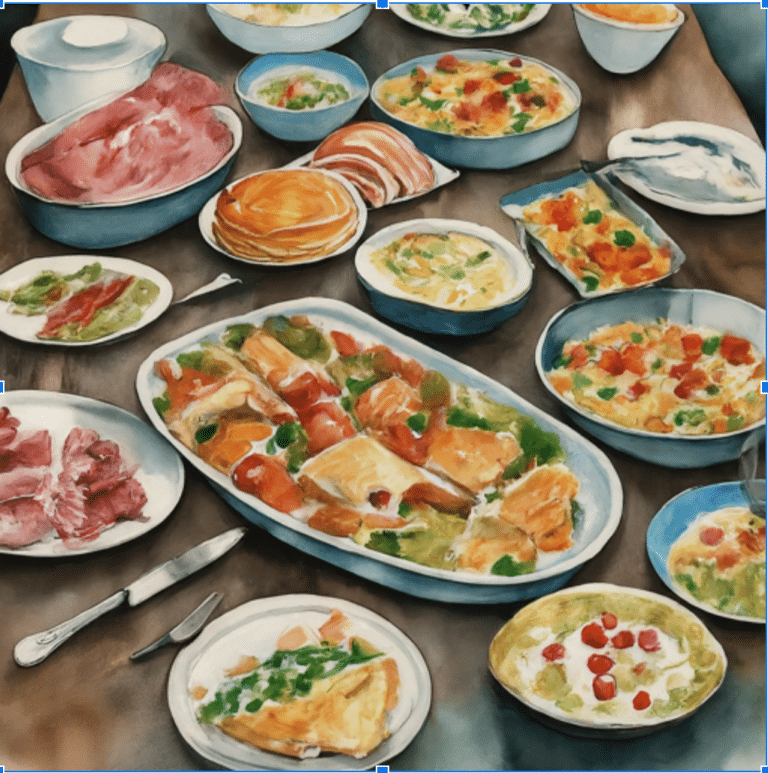
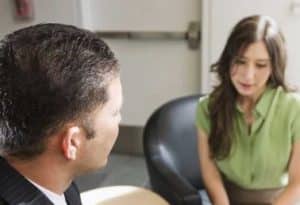
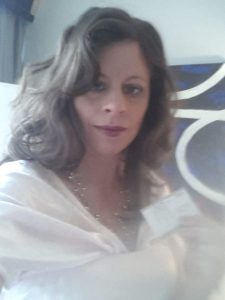

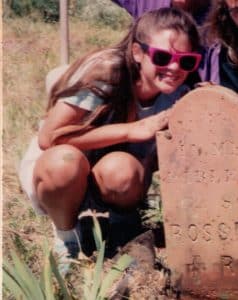
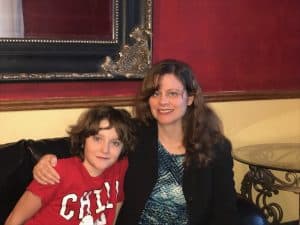
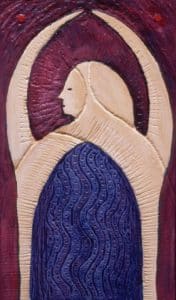

5 Responses
Thank you so much for this post.
Amen. Community is at the heart of being human and being followers of Christ, and being Mormon. I admire your courageous faith journey and path to leadership and I appreciate the examples. From my experience, community belonging and love are THE most compelling and beneficial things about religious life. I wish I had feminist girls’ camp available for my daughter, what lucky girls.
Wonderful sermon! If we are not going to ordain women in the LDS Church, can we at least say to every new Melchizedek Priesthood holder, “We are worried that you will use your new-found authority to harm people unintentionally, and so you must complete a training program.” The course would (1) be taught by women like yourself, (2) include guest speakers who had been harmed by the Priesthood, and (3) be required to be repeated on an annual basis to maintain the Priesthood. I know, I’m dreaming. But nobody can stop us from dreaming.
I couldn’t help but read this post imagining it in your voice with your inflections in every sentence. That definitely made it even better!
Your sermon moved me, Nancy. The potluck-type gatherings are one of the things I miss most about the LDS Church community I too felt I had no choice but to leave. Thank you for preaching about the heart of healthy communities—wherever we may find them. Sending you a hug!